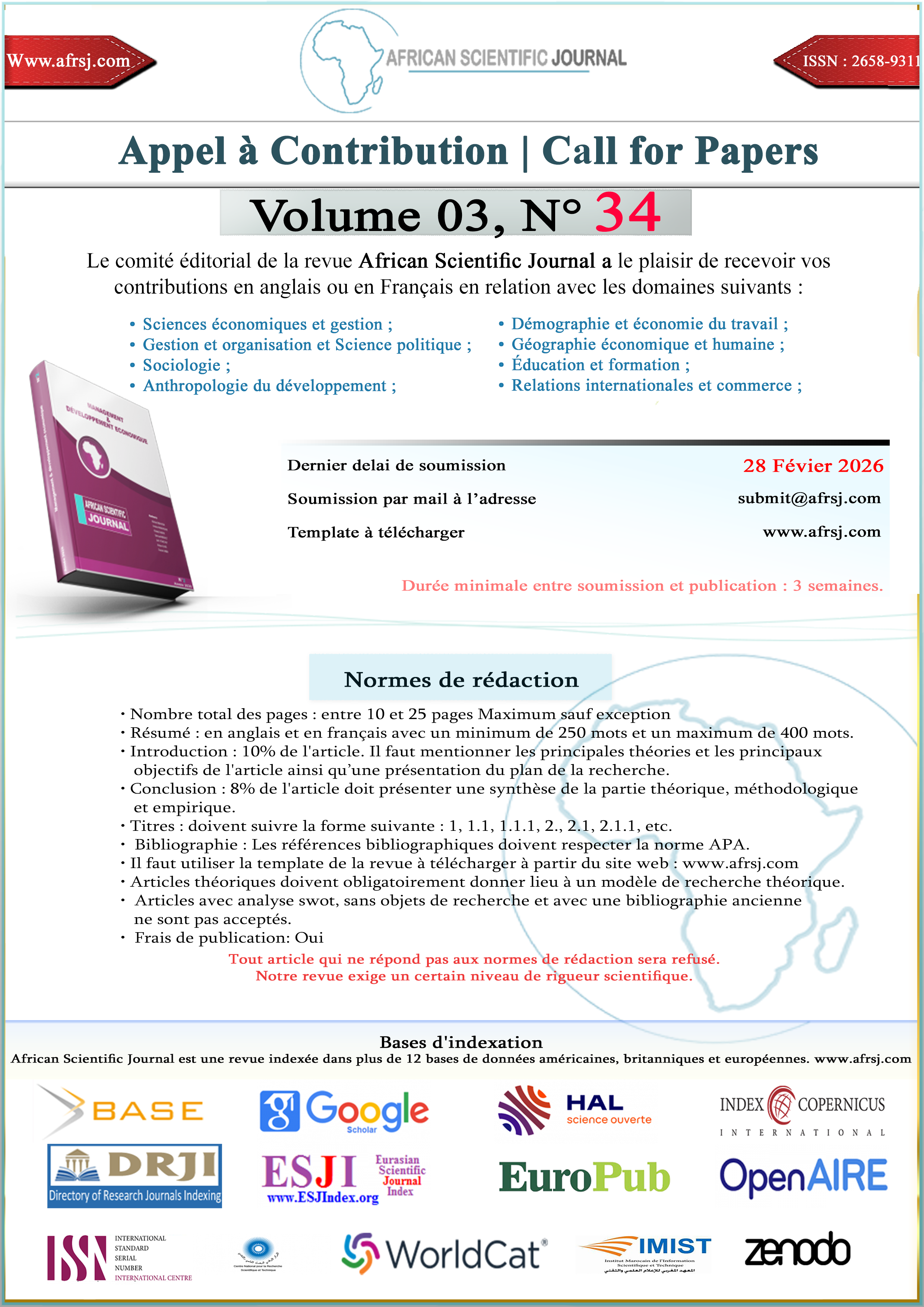The rule of Emotional Intelligence in the process of change management
DOI :
https://doi.org/10.5281/zenodo.14469833Mots-clés :
Intelligence émotionnelle, Leadership, organisations.Résumé
Abstract
In an era of organizational change imposed by technological advances, the role of the manager has become twofold. They are required to both embrace this change by supporting the transformation of roles, rethinking new modes of leadership and organization, and also to make their employees accept this change.
In this context of change, the organization needs to establish a learning culture that is conditioned by positive emotions. Hence, the importance of emotional intelligence, which facilitates this organizational transition and enables the entire hierarchy to adapt to the transformation while striving to find a balance and potentially benefit from it.
This work aims to analyze how the emotional intelligence can explain and contribute to the change dynamic.
To analyze this relationship, we have developed experimental design by comparing two groups through longitudinal approach and quantitative methodology.
After analyzing data and evidences we have clearly found that emotional intelligence can predict the performance of leaders and managers in the change situation.
Key words: emotional intelligence, leadership, organizations.
Résumé
Dans une ère marquée par des changements organisationnels imposés par les avancées technologiques, le rôle du manager est devenu double. D'une part, il doit adopter ces transformations en soutenant la reconfiguration des rôles, en repensant les nouveaux modes de leadership et d’organisation. D'autre part, il doit également accompagner ses employés dans l'acceptation de ces changements. Dans ce contexte, l’organisation doit établir une culture d’apprentissage conditionnée par des émotions positives. D’où l’importance de l’intelligence émotionnelle, qui facilite la transition organisationnelle, permettant à l’ensemble de la hiérarchie de s’adapter aux transformations, tout en recherchant un équilibre et des opportunités de valorisation.
Ce travail vise à analyser comment l’intelligence émotionnelle peut expliquer et contribuer à la dynamique du changement. Pour examiner cette relation, nous avons élaboré un protocole expérimental comparant deux groupes à travers une approche longitudinale et une méthodologie quantitative. L’analyse des données et des preuves recueillies révèle clairement que l’intelligence émotionnelle peut prédire la performance des leaders et des managers dans des situations de changement.
Mots clés : Intelligence émotionnelle, Leadership, organisations.
Téléchargements
Publiée
Comment citer
Numéro
Rubrique
Licence
(c) Tous droits réservés African Scientific Journal 2024

Ce travail est disponible sous licence Creative Commons Attribution - Pas d'Utilisation Commerciale - Pas de Modification 4.0 International.





















